Slicher van Bath de Jong Foundation for the advancement of study and research on the history of Latin America: Winners of the 2024 Call
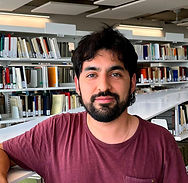
Cristobal Hernández
Andean Utopias
Andean Utopias. Republicanism and Early Socialism in the South American Pacific: Transnational Circulations and Intellectual Networks (19th Century)
The research project explores the reception, circulation, and translation of the language of early European socialism in the South American Pacific during the nineteenth century. This circulation was rooted in the transfer of European socialist publications to South America and in the social integration of Hispano-American exiles and travelers into literary circles in the Old World, who, upon their return, shared their experiences with their peers. This history of the connections of the first Hispano-American socialists, both regionally and within the Atlantic space, opens up an unexplored vein of nineteenth-century political processes, traditionally studied as units circumscribed to national territorial spaces. Specifically, studying early socialism in the Andean region makes it possible to 'de-nationalize' the history of the area while highlighting the interweaving of phenomena of reception and circulation of ideas at different scales of analysis: from European socialist circles to Latin American transnational public spheres. I propose that the conceptual transfer that took place in the mid-nineteenth century included a reformulation of the precepts of socialism in the Americas, the site of the enunciation of an early 'mestizo socialism' that influenced political processes in the Andean region.

David
Domínguez Cabrera
Second Slavery
Second Slavery, commodities and racialised logistical complexes (Cuba and Catalonia, 1840-1890)
The project Second Slavery, commodities and racialised logistical complexes (Cuba and Catalonia, 1840-1890) explores, from a transregional perspective, the study of the ports of Havana and Barcelona based on the functioning of the warehousing system, the circulation of capital, the labour configurations and the strategies of sociability and resistance of the workers - free and slave - during the period of consolidation of the Second Slavery.
PhD in History from the Universitat Jaume I (2021). Postdoctoral researcher at the Universitat Pompeu Fabra (Juan de la Cierva-Training) and member of the Research Group on Empires, Metropolis and Extra-European Societies (GRIMSE). Member of the R&D Group on Comparative Social History -a CSIC associated unit and CLACSO associated institution- (2017-2021) and founder of the Ibero-American Research Network on Maritime Communities (RIICoMa) (2021-present). Since 2014, he has been researching on the criminalisation of the Afro-descendant population, the second slavery and its impact on the configuration of labour regimes in Cuban ports. Currently his main field of study focuses on examining the formation of logistical complexes and racialised labour markets that were articulated in the sixteenth and nineteenth centuries for the production and transport of commodities in the capitalist world- economy.

Fabián
R. Vega
Indigenous Reading
Book Circulation and Indigenous Reading in the Borderlands of the Iberian Worlds: The Libraries of South American Jesuit Missions (17th-18th Centuries)
Within the Iberian empires, the Society of Jesus was the most successful religious order in using written culture and founding missions to convert Indigenous populations. Establishing libraries, and sometimes even printing presses, was an integral aspect of Jesuit missions. These libraries were tailored to, and even used by, non-European people, thus serving as material and intellectual instruments of cross-cultural interaction. Using the Jesuit missionary libraries from South America as a lens (i.e., decentring book history from Europe and North America), the goal of my research project is to understand how written forms of communication expanded and were appropriated—particularly in the borderlands—. In order to do so, this project analyses the contents, characteristics, and reading practices behind Jesuit missionary libraries. The main sources of this project are the inventories of Jesuit missions. My hypothesis is that these libraries played a key role in shaping Iberian globalisation and the relationship between Europe and the Americas. Missionary libraries housed similar books in distant territories, providing subjects of the Iberian empires with tools for understanding the world, dealing with practical matters, and self-fashioning. Typical books from these libraries were printed in Spain or Italy, were written in a Baroque style, and aimed at disciplining individuals’ behaviour in everyday life. They always conveyed similar Catholic and moral messages. When read, books functioned as instruments for shaping cultural identities, understanding temporal and spatial dimensions, and even using the body. Through writing, books, and libraries, Jesuits and literate Indigenous individuals created ties between distant territories, contributing to keeping the culture and ideas of different parts of the world together.
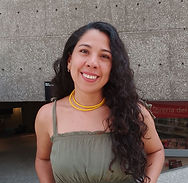
Olga Lucía
Martan Tamayo
Letrados negros y mulatos: una historia social e intelectual
Diálogos, conexiones e intercambios entre letrados negros y mulatos: una historia social e intelectual desde la francofonía en las Américas entre 1920 y 1940
En el marco del Doctorado en Historia que me encuentro realizando en El Colegio de México, pretendo llevar a cabo una investigación que parte de los estudios previos que he realizado sobre los estudios afrocolombianos en clave de la biografía intelectual de Manuel Zapata, pero cuya variación actual se centra en lograr una reconstrucción local, trasnacional y trasatlántica de las ideas, proyectos y agencias desplegadas por una constelación de letrados e intelectuales negros de América Latina que desde 1920 empezaron a sintonizar con las propuestas y reivindicaciones que en Francia pusieron a circular figuras representativas del movimiento de la négritude, tales como Aimé Cesaire, Leopold Sédar Senghor y León Damas, respecto del “problema del negro” y de la descolonización. La recepción, influencia y conversación que intelectuales negros y no negros de América Latina sostuvieron con estas ideas es lo que aquí he comprendido como la “Francofonía en las Américas”. En esta dirección, esta investigación tendrá que determinar cómo y de qué manera algunos intelectuales negros de América Latina al tiempo que procesaron y conversaron con las influencias políticas e intelectuales de los movimientos africanistas mencionados, también crearon sus propias ideas sobre la configuración socio-racial de sus respectivos países.
El desarrollo de esta investigación implica la inmersión en varios archivos y centros de documentación, tales como Maison de L´ Amérique Latine y La Sorbonne Université de París; la Fundación Nicolás Guillén, Fernando Ortiz y Casa de las Américas de La Habana; el Schomburg Center for Research in Black Culture de Nueva York; el Smithsonian Institution en Washington, la Colección Manuel Zapata Olivella en Nashville y el Archivo General de la Nación y la Biblioteca Nacional ubicados en Bogotá. Además de la formación doctoral que actualmente recibo en El Colegio de México y de la beca proporcionada por El Consejo Nacional de Humanidades, Ciencias y Tecnologías (Conahcyt), la indispensable labor de archivo de esta investigación será posible gracias al respaldo y apoyo económico proporcionado por la Universidad de Ámsterdam, el Center for Latin American Research and Documentation (CEDLA) y Slicher Van Bath de Jong Foundation.
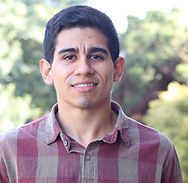
Marcelo Paulo Correa
La Audiencia de Charcas en las décadas centrales del siglo XVII
Investigo acerca de la relación de la Audiencia de Charcas y sus gobernaciones sufragáneas en las décadas centrales del siglo XVII. Me interesan especialmente modificaciones y adaptaciones que supuso el territorio del sur del Perú a la configuración jurídico-política de la Monarquía Hispana. Además, se trata de un estudio abocado a una época particular para el Consejo de Indias, en el que circulaban agentes con amplios conocimientos jurídicos y en la que, se puede afirmar, se intentó un ordenamiento jurisdiccional y corográfico del territorio.
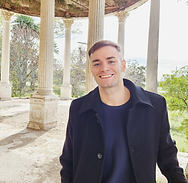
Francisco
Caamaño
The Ibero-American Anarchist Utopian Tradition
The Ibero-American Anarchist Utopian Tradition: Dialogues, Exchanges, and Influences between Argentina and Spain (1885-1936)
The research project aims to reconstruct the most important characteristics of the Ibero- American anarchist utopian tradition as it existed in Argentina and Spain between the years 1885 and 1936. Through the examination of dozens of utopian novels or essays written by anarchist propagandists and intellectuals, the work will proceed to comparatively analyze that abundant literature to detect the multiple dialogues, exchanges, and influences that existed between the libertarian movements of both countries.
Considering the historical and cultural closeness between Argentina and Spain, the close and constant circulation of activists, ideas, and dissemination materials, and the internationalist and anti-statist nature of anarchist ideology, this project will seek to identify and describe the points of intersection between the programmatic bases, and by extension, between the literary fictions of both organizational nodes to confirm the existence of a common utopian tradition. Thus, it will be evident how and from which actors the libertarian utopias in Argentina and Spain were symbiotically influencing each other, sharing various themes, arguments, and styles that demonstrated a clear line of continuity between them.
Francisco Caamaño CeDInCI/UNSAM - CONICET
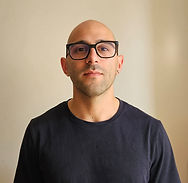
Mattia
Steardo
Political economy and land property in Buenos Aires
Mattia Steardo is a PhD candidate in the Global History of Empires programme (University of Turin). His research focuses on political economy and land property in Buenos Aires between 1770s and 1830s. The CEDLA scholarship will allow me to further study the economic ideas which guided the economic development of republican Buenos Aires. The research will contribute to a nuanced understanding of the ideological origins and creative use of political-economic concepts in this Latin American republican context.

Joshua
de Boer
Medellín in
1910 and 1940
My research delves into the transformative years between 1910 and 1940 in Medellín, a period marked by rapid urbanization and industrial growth. As Medellín evolved into a bustling industrial hub, it attracted waves of rural migrants seeking economic opportunities. However, this influx also brought challenges, such as poverty, unsanitary living conditions and social instability, which deeply troubled the city’s elite. My study examines how these anxieties led the elite to shape urban development policies and their attitudes towards the city's poor and migrant populations. By analyzing archival documents and conducting interviews with local experts, I aim to uncover the power dynamics and moral ideologies that influenced Medellín’s urban landscape during this crucial period.
Through this research, I seek to fill a significant gap in the historiography of Latin American urban development by focusing on Medellín, a city often overshadowed by larger capitals in academic studies. My work will shed light on how elite-driven policies have historically contributed to social segregation and inequality, offering critical insights into the ongoing challenges of urban development in Medellín. By understanding the historical roots of these issues, I hope to inform contemporary urban policies that promote social justice and inclusivity, ultimately contributing to a more equitable future for the city's diverse communities.
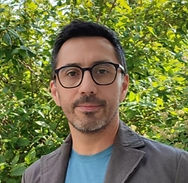
Manuel Antonio Méndez Díaz
Mining in the Loa Basin (1870-2020)
Historical geography of the mining landscapes of the Atacama Desert: socio-environmental impacts of industrial mining in the Loa Basin (1870-2020)
.png)





